On February 1, 2013, Hiroshima University established two new programs: the “Distinguished Professors” (DP) program and the “Distinguished Researchers” (DR) program. Individuals who are part of these programs are recognized as senior and junior faculty members respectively, who are engaged in extraordinarily distinguished research activities.
A Conversation with Distinguished Professor Kazuyoshi Ukena
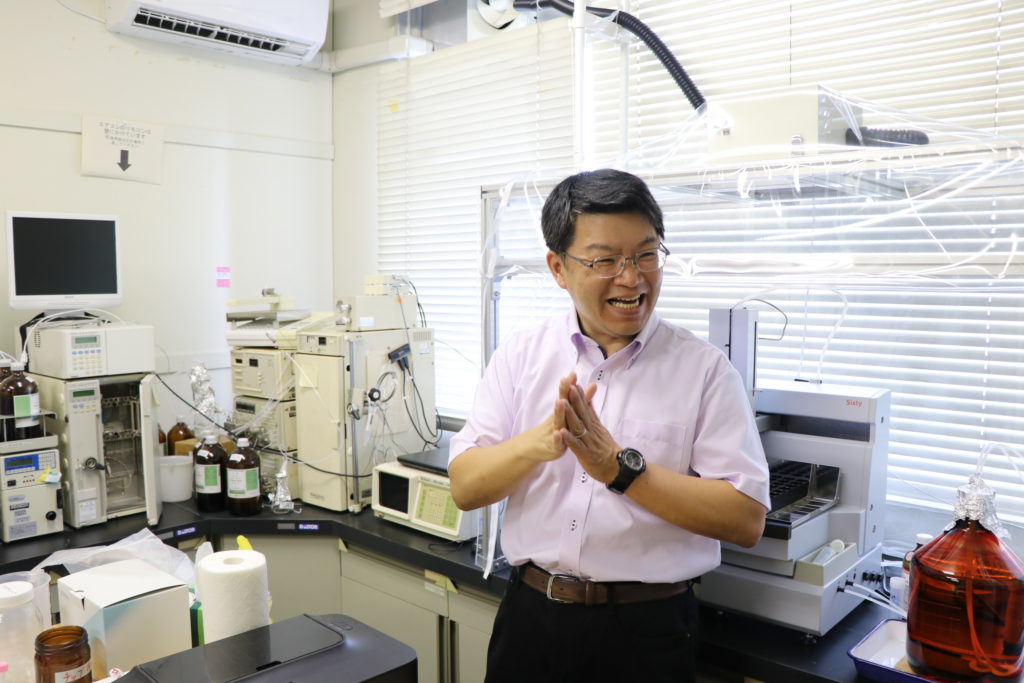
Can you tell me your name and specialist field?
My name is Kazuyoshi Ukena, my specialty is in neuroendocrinology (hormones in the brain) – I am interested in the mechanisms of homeostasis. This means keeping a steady level of things like temperature and blood glucose level inside your body. I am interested in feeding behavior.
In 2008 I discovered a gene in the chicken brain that was a precursor to Neurosecretory protein GL (NPGL), a protein that causes animals to gain weight and is involved in energy homeostasis.
What is the practical purpose of your work?
I would like to know the biological functions of NPGL in animals. I injected NPGL into chickens, rats and mice and they got fatter
Obesity is a very pandemic problem in the world. Our research can help with this problem. Japanese people don’t normally get fat but hidden obesity (internal fat and fatty liver) is a big problem.
What is the most surprising thing you have found in your research?
We found that NPGL induced fat accumulation but did not make rats eat any more than usual but it did change the feeding behavior in some animals. How rats gained weight without eating more was to convert glucose to fat. So, we came to the conclusion that dysregulation of NPGL under a high-calorie diet may be a root cause of obesity
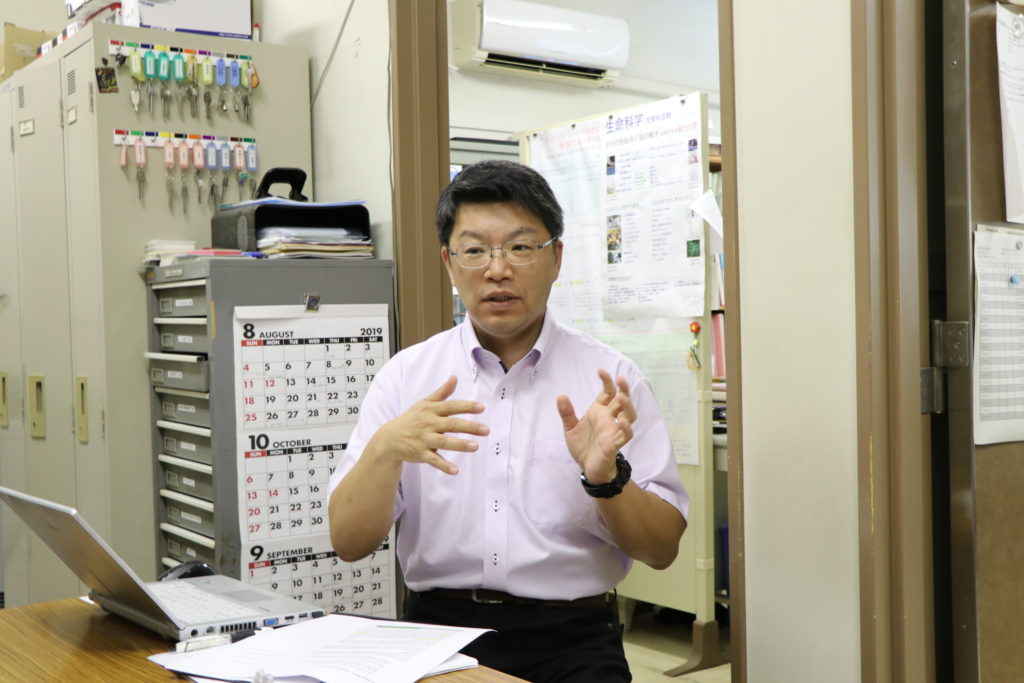
What are the challenges of your work?
We need many specialized fields in order to study NPGL, such as organic synthetic chemistry, physiology and endocrinology. Because of this we have a lot of collaborators in Japan and the U.S.
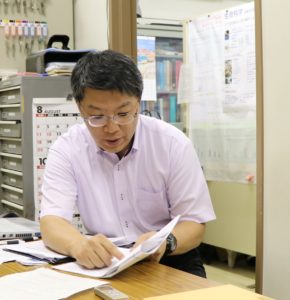
What are you working on now? Any update from your interview in 2017?
Since I had the interview in 2017, we have published 5 papers about NPGL. In addition, we are submitting several manuscripts to other journals, especially international journals.
Do you still have the same enthusiasm for your work?
Yes, I am very happy. We have to reveal the biological functions of NPGL and its related substance, NPGM (the function of which we are still not sure of).
You said in the last interview you were interested in instinctive behavior. Have you had a chance to work more on this topic?
Now I focus on energy metabolism including feeding behavior. In some animals the behavior changes with NPGL and in other animals it doesn’t. Obesity results mainly from overfeeding but the neural control of obesity is still not completely understood. We sought to identify previously unknown bioactive substances in the brain that regulate energy metabolism.
What is the best thing about working at Hiroshima University? How has it changed in 2 years?
After we published our paper in eLife, an international journal, we could get several grants to investigate NGPL in more detail and get a new peptide synthesizer machine which allows us to produce NPGL easily and efficiently.
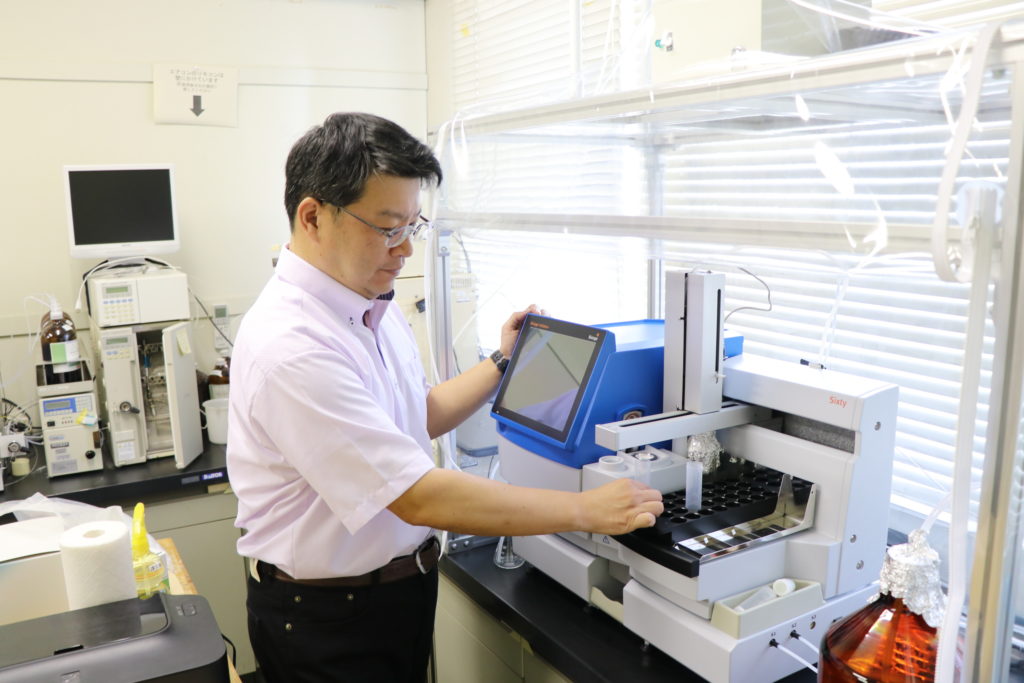
In addition our paper in Endocrinology 2017 was selected as an Endocrine Society Thematic Issue 2018, which means it was one of the paper This was very surprising for us and our specialized field.
Finally, I was also selected as a Distinguished Professor after being a Distinguished Researcher. This is also a great thing!
Any advice for students or future researchers?
I would like to say to find your interest, try it without hesitation, find your dream and don’t give up.
As we say in Japanese: 七転び八起き Nana-korobi, Ya-oki (fall down seven times, stand up eight times)!
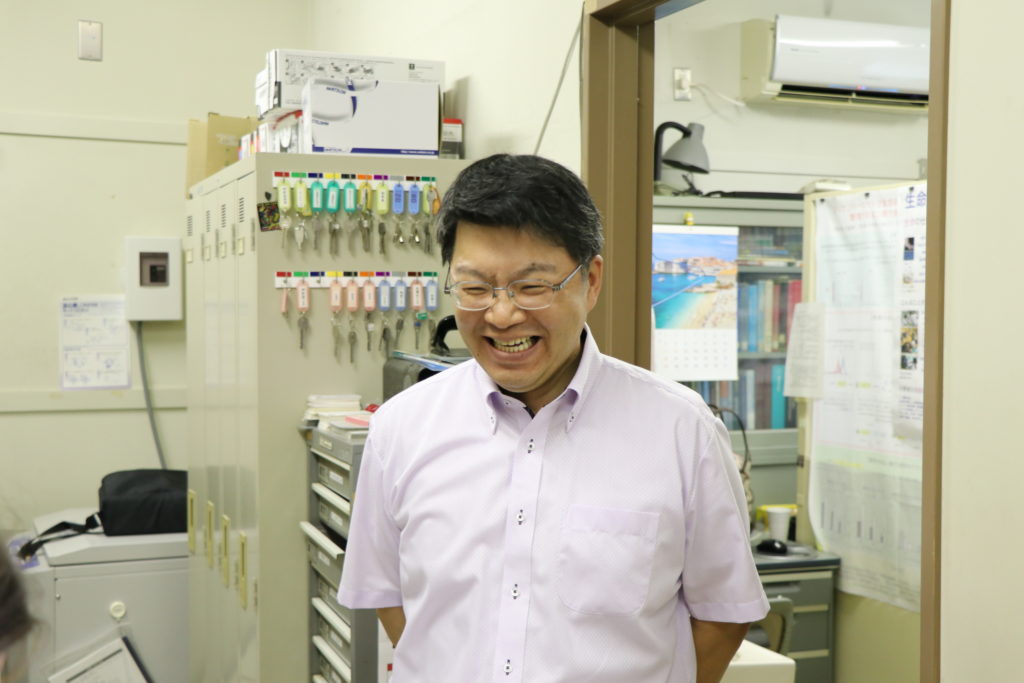

 Home
Home